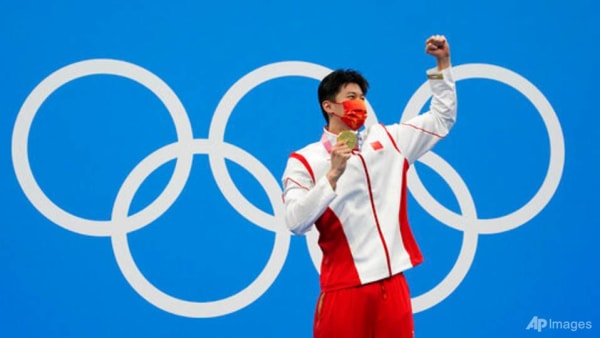Commentary More to US-China competition even at the Olympic medal count
 LEARN FROM EACH OTHER
LEARN FROM EACH OTHERThe third lesson is perhaps the most important: Learning and opening up are key to the success of all countries.
Neither China nor the US is perfect. Both have flawed social, economic, and political institutions, and much to learn from each other’s best practices.
China’s larger-than-life hero of the Tokyo Olympics was Su Bingtian. Although Su did not win any medals, he broke the Asian record for the men’s 100m dash during the semi-finals, becoming the first Chinese athlete and the only Asian since 1932 to make it to the event’s finals (where he placed sixth).
A major factor in Su’s success is that, unlike many of his Chinese peers, Su was trained by a renowned coach from the US â€" a world leader in track and field, especially in short-distance sprint events.
Su’s coach introduced new ideas and applied a new framework to his training, helping him to become a more effective runner.
In the China-US competition, both countries should follow Su’s example. China can keep learning from American best practices in a variety of areas.
Likewise, the US should not brush aside China’s economic and social successes as pure luck or cheating. An openness to exchange and a genuine desire to learn would help both countries to perform better.
And by defusing bilateral tensions, it would make the race less cutthroat.
David Daokui Li, a former member of the monetary policy committee of the People’s Bank of China, is Director of the Academic Center for Chinese Economic Practice and Thinking and Professor of Economics at Tsinghua University. PROJECT SYNDICATE
0 Response to "Commentary More to US-China competition even at the Olympic medal count"
Post a Comment